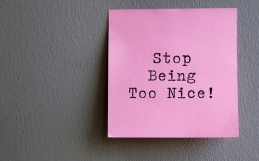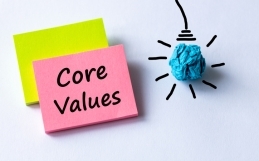Sarah had always prided herself on her meticulous attention to detail and ability to manage multiple tasks efficiently. One day, during a routine team meeting, her colleague, John, casually mentioned that there might be an error in one of her project reports. Despite his calm and constructive tone, Sarah felt an immediate surge of anxiety and defensiveness.
Believing her professional competence was under attack, Sarah overreacted by raising her voice and defensively listing all the effort and thoroughness she put into the report. The room fell silent, and her team members exchanged uncomfortable glances. Sarah’s reaction wasn’t just a response to John’s comment—it was fueled by her deeper emotional triggers, stemming from her constant self-imposed pressure to be perfect and fear of criticism.
This incident highlights how overreactions often have little to do with the immediate situation and more with unresolved personal fears and insecurities. It underscores the importance of self-awareness and emotional intelligence in preventing such outbursts.
You can probably think of a time when you overreacted or of someone who has overreacted to you or constantly overreacted to situations. It happens, and labeling intense emotional responses as overreactions is easy, but understanding the underlying causes can provide a more compassionate perspective. We can better navigate these situations by paying attention to emotional triggers and perceived threats to one’s energy supply.
According to Bowen’s family systems theory, family dynamics and personal history deeply influence our behaviors and emotional responses. This theory emphasizes the importance of understanding these patterns to manage emotional reactivity effectively. Let’s explore how this framework can help us deal with overreactions constructively.
Everyone has emotional triggers—specific situations that evoke strong, often unwelcome emotions. For some, it might be the grief of lost opportunities or unmet expectations. Others may react strongly to feeling undervalued or wanting to protect loved ones. Bowen family systems theory suggests that these triggers are often rooted in our early family experiences and personality traits. When someone appears to overreact, they may respond to deep-seated emotional triggers that are not immediately visible. Recognizing these triggers can provide crucial insight into seemingly disproportionate reactions.
Here are some common emotional triggers:
- Unresolved past experiences: Events that repeat unresolved issues from one’s past can provoke strong emotional responses.
- Perceived injustices: Situations where individuals feel mistreated or disrespected.
- Protective instincts: Strong emotional responses arise when protecting oneself or loved ones from perceived harm.
Additionally, we all have preferred sources of emotional energy that sustain us daily. Some people find energy in solitude, while others thrive on social recognition and support. When these energy sources are threatened, engaging in self-protective behavior is natural, which might seem like an overreaction to others. According to Bowen’s family systems theory, our patterns of managing stress and seeking comfort are often shaped by our family systems.
Here are some ways energy supplies can be threatened:
- Loss of solitude: Introverts may feel depleted when they can’t find time alone to recharge.
- Lack of recognition: Feeling unappreciated can drain those who derive energy from acknowledging their efforts.
- Stressful interactions: Continuous stress from interpersonal conflicts can deplete one’s emotional reserves.
How to De-Escalate When Someone Overreacts
It is very uncomfortable when we are on the other end of someone’s overreactions. When facing an overreaction, consider these strategies to foster understanding and de-escalate the situation:
1. Acknowledge Emotional Triggers:
- Identify potential triggers for both yourself and others. Reflect on what emotions are being stirred and why.
- Create a safe environment for expressing these emotions without judgment. Ask open-ended questions to understand the root cause.
- Work on managing your emotional reactivity to their overreaction.
2. Understand Energy Threats:
- Recognize what energy sources might be under threat. Is someone feeling unappreciated or overwhelmed?
- Engage in empathetic dialogue to uncover what is most important for the person in this situation. Validate their feelings and offer support.
- Know when it is time to end the conversation. Some people need more time than others to calm down. If the reaction continues to be irrational, excuse yourself to talk later.
By incorporating Bowen family systems theory insights, we can better understand the complexities behind emotional overreactions. This approach allows us to respond with empathy and de-escalate tense situations effectively. Understanding overreactions gives us a deeper appreciation for intricate emotions and experiences that shape our behaviors. This awareness can lead to more compassionate interactions and healthier relationships.
Considering Sarah’s emotional triggers and the sources of her energy threats, her colleagues could have approached the situation with greater empathy and understanding. Acknowledging her need for recognition, they might have offered her a compliment for what she has done right. This would validate Sarah’s feelings and help her regain balance. It’s crucial to remember that managing oneself rather than attempting to control the other person is critical in moments of overreaction. This involves maintaining calm, allowing space for emotions to be expressed, and responding with empathy.
However, setting firm boundaries is essential if you notice a pattern of heightened reactions that become verbally abusive. Clear communication about acceptable behavior and the consequences of crossing those boundaries can help create a respectful environment for all parties involved. Establishing these limits ensures that while empathy is practiced, it does not come at the expense of one’s emotional well-being and safety.
Did you enjoy reading this article?
Once a week I send out a newsletter with new articles and unique content for readers. It is my way of staying in touch with you and giving you free advice based on some important topics.
Click here to sign up for my newsletter.





